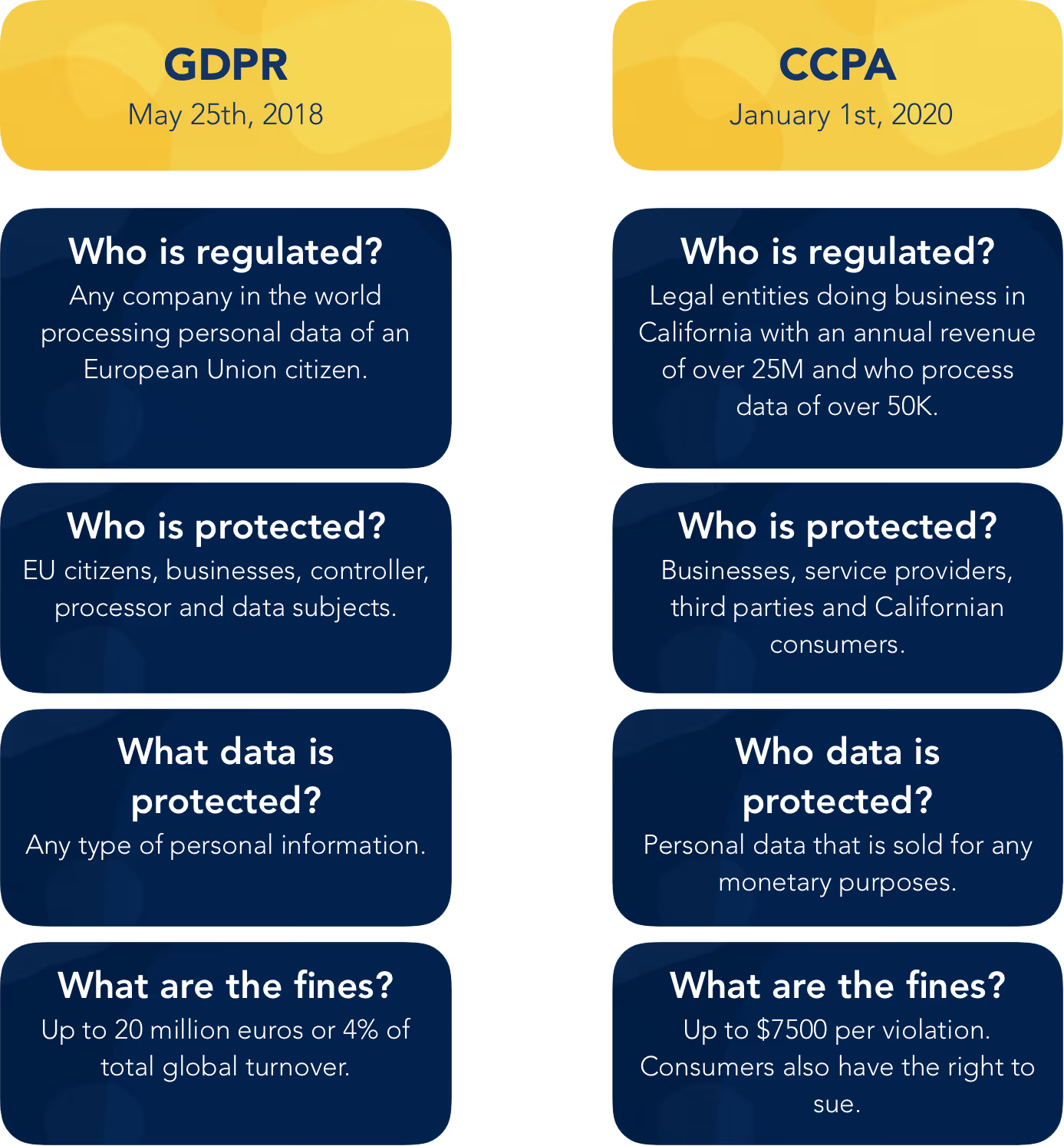Since May 2018, there were over 145K complains about data privacy in Europe. Therefore, businesses all over the continent felt the urge to review their policies and to deal with this issue. With the introduction of GDPR in the same year, it allowed individuals to choose whether or not to provide their personal information, with their own consent, and to enable international businesses to have unified regulations all over the EU zone. As today data privacy became a major concern for companies, what is its impact in their operations? How is it applied for guest Wi-Fi? And what are the latest updates?
Why GDPR is so important?
After the GDPR regulation came into force in the 25th of May 2018, it pushed companies to be more concerned about their customers privacy and to be aware of the way they collect and use their personal information. In this way, they created a transparent and trustworthy relationship with their customers by specifying everything on their privacy policies in the different operations they have realized. According to a report conducted by the European Commission in 2019, the marketing department was the most affected area of the company regarding data concerns as the main activities which received the most complaints were telemarketing and promotional e-mails.
How GDPR affected marketing operations after its adoption in business

Compliance and guest Wi-Fi
Many companies and brands provide a guest wireless service for convenience or marketing purposes on their specific locations. By doing so, the matter of compliance is usually put forward. Now it’s time to find out whether or not your guest Wi-Fi is compliant!
With the respect of GDPR requirements, your guest Wi-Fi service need to seamlessly show: the type of information you will collect, the purpose of its use, the duration of keeping the data, the security measures undertaken to keep it, the notification of breaches and the possibility for the guest to modify or erase his information.
After verifying all these conditions, the brands need to highlight as well the added-value for customers who share these valuable data: getting exclusive offers, receiving personalized newsletters, obtaining gifts for birthday or special events, etc.
Here is an example of a compliant guest Wi-Fi service:

What about CCPA?
After the global impact of GDPR, a new regulation appeared but this time in the United States and more specifically in California at the beginning of 2020. The California Consumer Privacy Act, commonly called CCPA, enables Californians to be fully autonomous on the data they wish to share and whether or not they would like companies to use it or delete it.
Just like GDPR, businesses adopting CCPA will need to be transparent about the collection of data and meet the different requirements previously mentioned. Here again, consumers’ privacy are put in the core of the law to prevent misuse of personal information.
Here a quick overview of the main differences between GDPR and CCPA:









